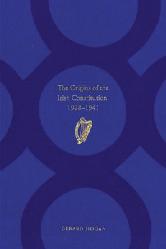The origins of the Irish constitution, 1928–1941
Published in 20th-century / Contemporary History, Devalera & Fianna Fail, Features, General, Issue 1(Jan/Feb 2013), Volume 21 The first constitution of the new Irish state was innovative: it asserted the sovereignty of the people; it included a bill of rights, a guarantee of free elementary education, trial by jury and direct democracy (on the say-so of 75,000 electors). And it contained a provision allowing judicial review of legislation, which broke with the then orthodoxy of the sovereignty of parliament.
The first constitution of the new Irish state was innovative: it asserted the sovereignty of the people; it included a bill of rights, a guarantee of free elementary education, trial by jury and direct democracy (on the say-so of 75,000 electors). And it contained a provision allowing judicial review of legislation, which broke with the then orthodoxy of the sovereignty of parliament.
But there was a fundamental flaw. It provided, in Article 50, that for a period of eight years after it came into effect it could be amended by the Oireachtas, without reference to the people. This Article 50 was itself amended by the Oireachtas, extending the time-frame within which the constitution could be amended and a referendum could be circumvented. In the fifteen years of its existence the 1922 constitution was amended by way of ordinary legislation on 27 occasions, and of the 72 original articles only 31 remained intact. Many of these amendments negated the fundamental rights that the constitution promised.
Nobody, it seems, thought of devising a new constitution to replace the flawed 1922 one, but events unfolded that made this inevitable. The first step in that direction came about when Eamon de Valera moved to abolish the Senate in 1934. This was perceived as a breach of guarantees given in 1922 to Southern unionists. In a Dáil debate concerning this, de Valera said that he favoured an arrangement whereby constitutional provisions on fundamental rights be protected from amendment other than by a referendum or by some special requirement for a specified Dáil majority.
This led to the establishment of a constitution committee in 1934 to consider what amendments might be made to the 1922 constitution and how certain provisions could be rendered immune from change by a simple Dáil majority. At just the second meeting of the committee they agreed that their report should take the form of an entirely new constitution, but two days afterwards Eamon de Valera
'
















